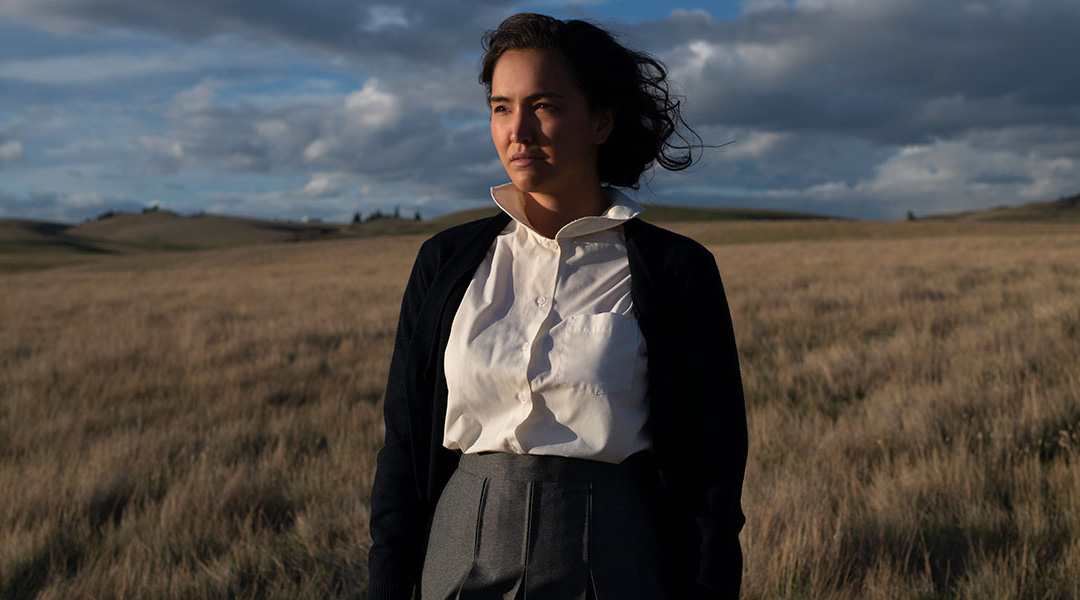It is an unenviable task that writer/director Marie Clements takes on with “Bones of Crows,” distilling into two hours the totality of the devastation on generations of indigenous families in Canada when children were routinely stolen from their parents and enrolled in residential schools where Catholic values were intended to obscure any connections they had to their roots. Beyond the sheer scope of the damage that was caused, the heaviness of the material could easily make for a smothering history lesson and there is that concern early upon being plunged into Turtle Crossing in Manitoba towards the end of the 1800s where white settlers lure the natives in the area to a general store with the promise of fresh vegetables and fruit, only to say “April Fools Day” as a cruel joke.
However, Clements emerges with the last laugh in her wildly ambitious yet consistently engaging drama tracing the separate paths that three children of a Cree family take after being separated from their parents and from one another. The writer/director finds her throughline in Aline (Grace Dove), the most resourceful of the three who draws on her native tongue to find employment with the Canadian military as a codetalkers during World War II. Obliged to serve a country that has betrayed her so deeply when few other opportunities exist, Aline pushes ahead as she can only imagine what has become of her sister Perseverance (Alyssa Wapanatâhk) and her brother Tye and Clements structures the film to reflect the trauma that is constantly simmering beneath the surface, cross-cutting between different periods where Aline’s memories of the residential school where she managed to stay afloat with her prodigal piano skills amidst various abuses alternately open her up to fresh pain or add to her drive.
Clements is said to already have plans to expand “Bones of Crows” into a limited series using the footage she already has, but the feature film version is impressively paced just right, neither feeling rushed or bloated as it covers the horrors of the residential schools without ever wallowing in them. A spirited lead performance from Dove goes a long way towards keeping the epic buoyant as Aline travels from Quebec to London where she reunites with her husband Adam (Phillip Lewitski), who also serves in the military, to eventually Toronto where she becomes a caretaker for the elderly, asked time and again to place the well-being of other families above her own, extending even after she has three grown children of her own. Presented in parallel to the fate that befalls Perseverance, who gradually comes into the picture after leaving the confinement of the residential school only to end up in prison, what little Aline has looks like a lot and for all the grandeur that comes with the epic sweep of “Bones of Crows,” the great tragedy lies in the small, unimaginable and unexpected ways in which the family separation and the mistreatment the indigenous community endured shows up in Aline’s experience even when the effects seem far removed.
Although Aline never has control over how and when the heartache she does her best to suppress will show up, Clements affords her a handle on her own story that is powerful enough, but in exhibiting such a strong hold over such a sprawling narrative, the director is able to deliver some semblance of inner peace for her characters that is bound to spill off the screen even as it ignites new conversations about such a dark chapter in Canadian history.
“Bones of Crows” does not yet have U.S. distribution.




